PM launches health insurance for Punjab
Imran says Sehat Sahulat cards to ensure complete health coverage
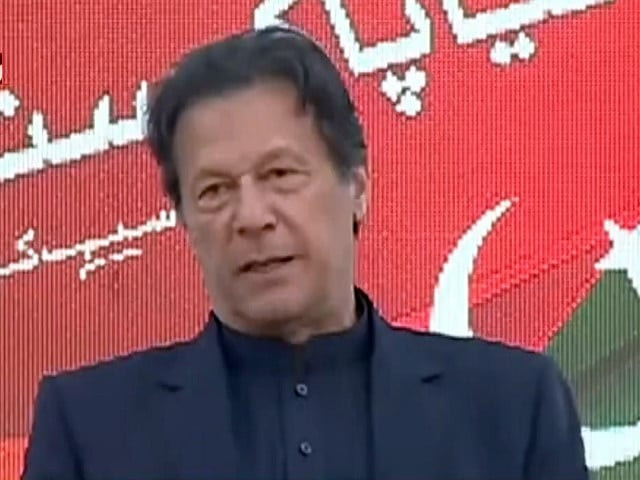
Prime Minister Imran Khan Monday launched the Naya Pakistan Sehat Card scheme providing the annual health insurance cover of Rs1 million to each family across the Punjab province.
“This is a landmark. This is a defining moment towards our course to make Pakistan a welfare state,” the prime minister said addressing the launching ceremony here.
He said starting from January 2022, the Sehat Card would be distributed across the province within three months allowing whole of the Punjab population to avail free medical treatment worth Rs 1 million a year at both government and private hospitals.
“This is not a health insurance rather a health system. Now private sector will build hospitals even in villages where the basic health units remain vacant as no doctor desires to be posted there. Now private sector will come and poorest of the poor will get free treatment,” the prime minister remarked.
He said the difficulties faced by his family for treatment of her cancer patient mother, had prompted him to think of introducing a universal health insurance facility for the whole population so that no one had to sell out belongings for the medical treatment of their dear one.
He said three months of his mother’s illness was an ordeal from Allah for his whole family.
He said the health insurance cover would give the families a confidence to get treated their ailing family members which otherwise was unaffordable for many.
Reiterating his vision of replicating Madina State model in Pakistan, he said the Holy prophet established the world’s first welfare state even without having sufficient resources. This proved that brining humanity to a state was more essential than the resources for establishing a welfare state.
Similarly, he said Pakistan was to become an Islamic welfare state but the leaders so far had been awaiting the resources which was contrary to the precedence of the Madina State.
He apprised the audience that despite the discouraging notions about the feasibility of Shaukat Khanum Hospital, 75 of per cent patients were getting free medical treatment. The hospital which was built at cost of Rs 700 million now spending Rs10 billion for treating the patients.
Similarly, he said despite immense pressure from the opposition for a blanket lockdown during the COVID-19 pandemic, he opposed the idea just fearing the sufferings of the daily wagers and vendors.
He said unfortunately the elite class never thought of the poor people while suggesting the lockdown. He said owing to the resource and systemic constraints, Pakistan could also not afford supplying food to every household as China did in Wuhan.
The prime minister said now Pakistan was being cited as a country which had effectively maintained balance between lives and livelihood, just owing to Allah’s blessing and the prayers of the poor people.
He told the gathering that the Punjab government would spend Rs440 billion in three years for the health insurance facility to the people.
He said no one had ever thought of such a facility as even Punjab chief minister and health minister were shocked considering the project’s financial implication.
Read Govt to extend Sehat Sahulat Programme coverage
He said in order to ebb away the pressure of inflation from the people with below Rs50,000 monthly income, the government had launched Ehsaas Rashan scheme to provide 30% subsidy on ghee, flour and pulses.
Moreover, the government would also provide 6.2 million education scholarships worth Rs47 billion the deserving students.
Separately, Prime Minister Imran Khan said national security could not be ensured unless inclusive development and equitable growth of all segments of society, provinces, and people was established.
“Unequal distribution of resources leads to anarchy among the people who are left out of the mainstream development,” he said, at the inaugural session of the annual Margalla Dialogue.
The prime minister said the uplift of underprivileged segment of the society was critical to ensure across the board national security.
He stressed that rule of law and equality for all were the preconditions for democracy.
He regretted that Pakistan had suffered an inequality due to three simultaneous educational systems, namely English and Urdu medium schools, and the madrassas.
He pointed out that differences in educational standards of the systems resulted in three different kinds of generations with discrimination in opportunities of jobs.
Imran Khan also pointed out that corruption, particularly of the elite, was detrimental to the development of a country.
Also read The new social contract
The prime minister emphasized the importance of research by the think tanks of the country to counter the negative propaganda in the world.
“Research leads to original thinking within a society. You have to define yourself instead of letting others define you,” he said.
He said lack of in-depth research led to reliance on second-hand information by the western think tanks on important issues such as Afghanistan.
Pakistan, he said, was the country that suffered most in collateral damage in the wake of the Afghan conflict, however was made a scapegoat for the mistakes of the superpowers.
He mentioned that inability of the national leadership to handle the Afghan situation wisely landed the country into two main pro and anti-America divisions.
He said the role of local think tanks in this situation was important to effectively highlight Pakistan’s perspective in the world rather than being under continuous criticism by the western lobbies.
The prime minister said Pakistan was blamed for wrong reasons by the international community, whereas it remained mum on the atrocities committed by India in the Illegally Occupied Jammu and Kashmir.
Imran Khan said Pakistan in fact had a beautiful and positive face being the home of generous and hospitable people.
On Islamophobia, he said, a strong response by Muslim think tanks was important to nullify the impression of Islam’s linkage with terrorism.
🔴Live
— Government of Pakistan (@GovtofPakistan) December 13, 2021
صوبہ پنجاب میں نیا پاکستان صحت کارڈ پروگرام کے اجراء کی تقریب
وزیراعظم عمران خان کا تقریب سے خطاب#صحت_کارڈ_سب_کیلیے@PakPMO @GovtofPunjabPK https://t.co/MUlRrZDph2

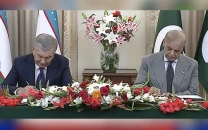
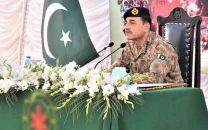


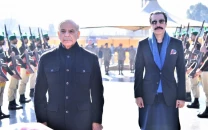
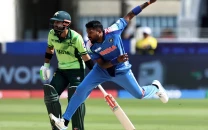












COMMENTS
Comments are moderated and generally will be posted if they are on-topic and not abusive.
For more information, please see our Comments FAQ